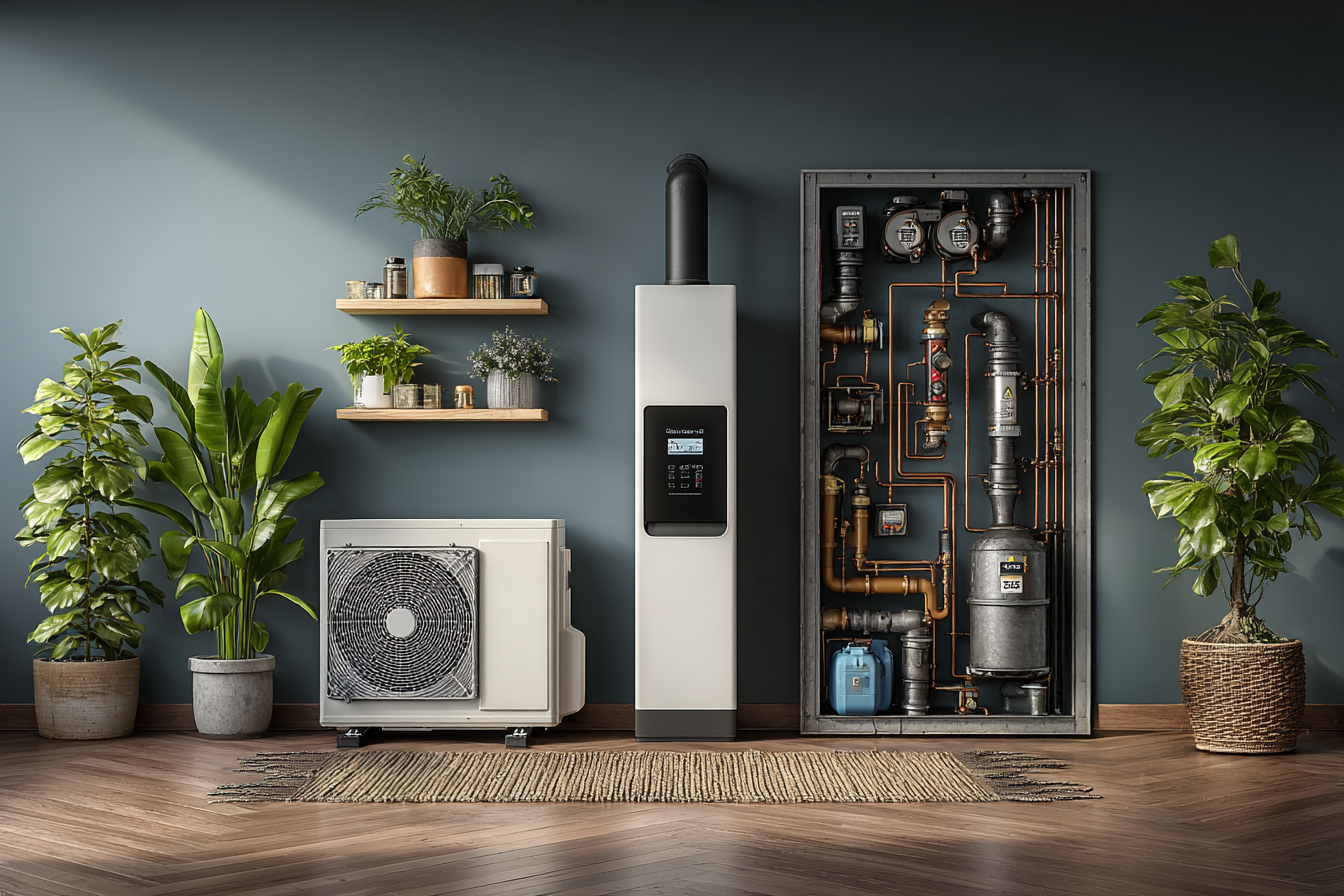Ductless vs. Ducted Heat Pumps: What’s Best for Your Canadian Home?

Written by Solenery
2 min read
Ductless vs. ducted heat pumps is one of the biggest decisions Canadian homeowners face when upgrading to a heat pump. Should you choose a central (ducted) system or a ductless mini-split?
The answer depends on your home’s layout, existing HVAC setup, budget, and climate. Pick the wrong one, and you risk inefficient heating or costly renovations. In this guide, we’ll compare both options side by side explaining the pros, cons, and best-fit situations to help you make the right choice for your home.
What’s the Difference Between Ducted and Ductless Heat Pumps?
Let’s start with the basics:
View Feature Comparison Table
| Feature | Ducted Heat Pump | Ductless (Mini-Split) Heat Pump |
|---|---|---|
| Air Delivery | Through existing ducts and vents | Directly into each room via wall-mounted units |
| Installation | Integrates with furnace/AC system | No ductwork required |
| Appearance | Hidden in ceilings/furnace room | Small visible units in rooms |
| Best For | Homes with existing ducts | Older homes, additions, or no ducts |
Read more: Ductless vs. Ducted Heat Pumps: What’s Best for Your Canadian Home?
Fun fact: Both systems use the same core tech, they just deliver air differently.
Ducted Heat Pumps: Pros, Cons & Ideal Homes
Pros of Ducted Heat Pumps
- Whole-home temperature control with a single system.
- Discreet—no wall-mounted indoor units.
- Compatible with smart thermostats.
- Works well for homes with central forced-air systems.
Cons of Ducted Heat Pumps
- Requires functional ductwork.
- Installation can be costly if ducts need repair or modification.
- Less flexible for homes with closed-off rooms or multiple floors.
Best for: Newer homes, homes with existing furnaces, or major renovations that include duct upgrades.
Example: A Mississauga homeowner with a gas furnace switched to a ducted cold-climate heat pump using the same vents, cutting their winter heating bill by 40%.
Ductless Mini-Splits: Pros, Cons & Ideal Homes
Pros of Ductless Mini-Splits
- Easy install with no ductwork required.
- Zoned comfort—different temperatures in different rooms.
- Ideal for home offices, additions, and rental suites.
- Highly efficient for cold climates.
Cons of Ductless Mini-Splits
- Visible indoor units (usually wall-mounted).
- More expensive to cover a whole home.
- May need multiple units for multi-storey homes.
Best for: Older homes with baseboard heating, homes without ducts, condos, or when adding heating/cooling to one room.
Example: A homeowner in Halifax installed two mini-splits in their 1950s bungalow (no ducts) and now cools in summer and heats in winter for less than $150/month.
Read more: How to Hide Your Heat Pump Without Blocking Airflow
Cold Climate Considerations: Ductless vs. Ducted Heat Pumps in Canadian Winters
In provinces like Alberta, Manitoba, and Nova Scotia, homeowners often weigh ductless vs. ducted heat pumps when choosing a cold-climate-rated system.
What to Look For in Cold-Climate Heat Pumps
- HSPF ≥ 10 (Heating Seasonal Performance Factor).
- ENERGY STAR® Cold Climate rating.
- Operates efficiently down to -25°C or lower.
- Variable-speed compressors for better performance in fluctuating temperatures.
Bonus: Ductless systems often perform better in extreme cold because they don’t lose heat through long ducts.
Ductless vs. Ducted Heat Pumps: Cost Comparison & Rebates
View Cost Comparison Table
| Feature | Ducted System | Ductless Mini-Split |
|---|---|---|
| Typical Install Cost | $10,000–$15,000 | $4,000–$10,000 |
| Rebates Eligible | Yes | Yes |
| Canada Greener Homes Grant | Up to $5,000 | Up to $5,000 |
| Provincial Add-ons | Yes (e.g., CleanBC, HER+, Efficiency NS, Yukon, Manitoba) | Yes (same) |
Planning Tip: Combine your heat pump install with insulation or window upgrades for additional grants and long-term savings.
Conclusion
When choosing between ductless vs. ducted heat pumps, both options offer excellent performance for Canadian homes. If your house already has central air, a ducted system might be ideal. Otherwise, a ductless mini-split provides efficient, targeted heating and cooling without costly renovations.